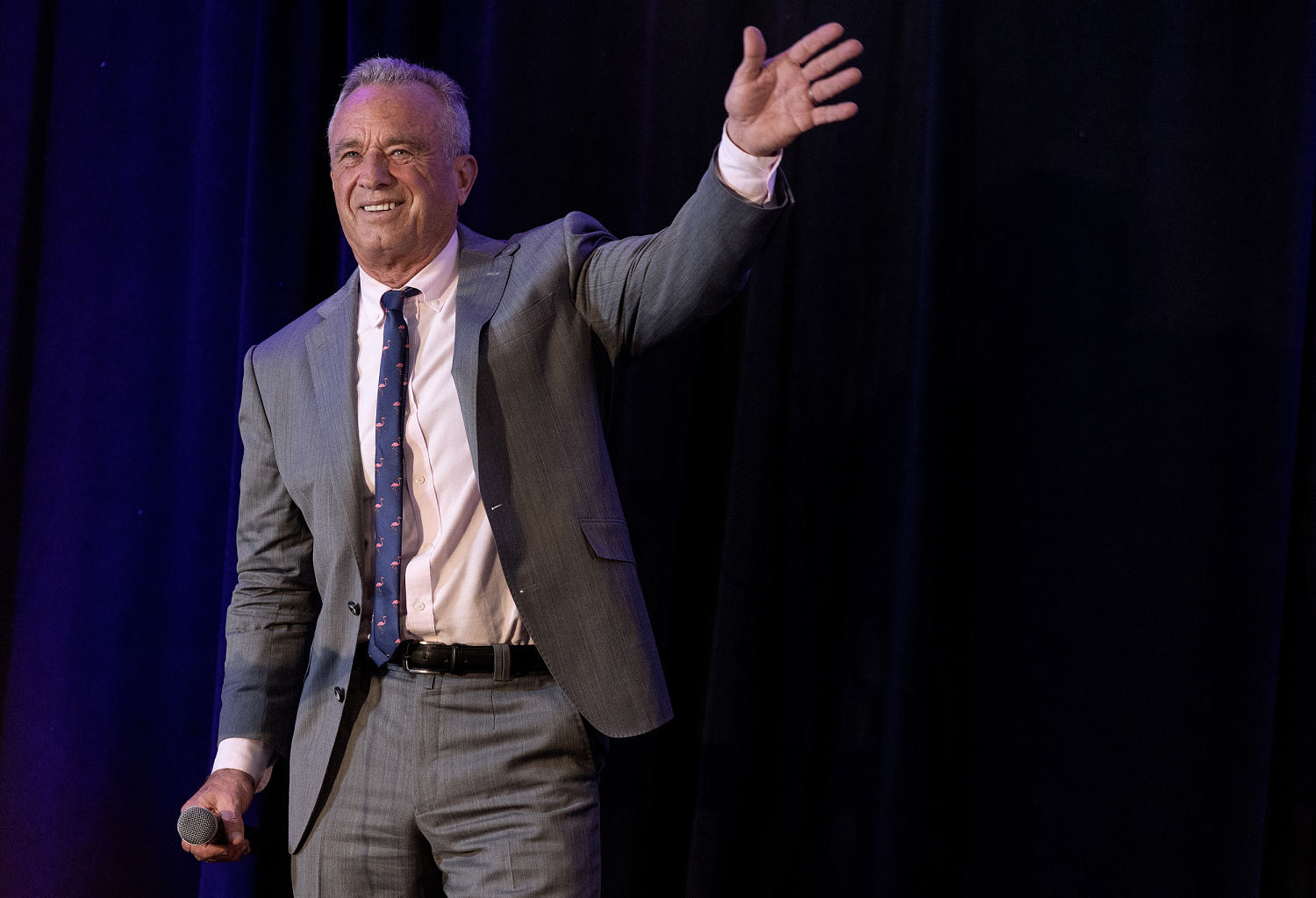
Robert Kennedy Jr. announced on Friday that he has suspended his independent presidential campaign and will be endorsing former President Donald Trump. His move adds yet another twist in a presidential race filled with unexpected developments. It remains unclear how Kennedy’s withdrawal could affect the outcome of the election, and how much the move could reduce the number of voters who may have cast a ballot for him instead of Trump. More broadly, Kennedy’s maneuver is also a fascinating reflection of this ideologically topsy-turvy political era, when the Covid pandemic has scrambled American politics in unpredictable ways and turbocharged an epidemic of mistrust.
Kennedy launched his campaign last year as a Democrat. On one level, that made perfect sense. Kennedy had been a lifelong member of the party, where his family remains political royalty. He worked for many years as a prominent environmental lawyer. And his presidential policy platform included some conventionally progressive ideas, such as support for unions.
Kennedy’s political transformation illustrates how Covid and the government’s response to it really shook up some people’s worldview.
But on another level, it was an odd fit. Well before Covid derailed the world, Kennedy’s reputation as an environmental lawyer had been outstripped by his activism against vaccines. During the pandemic, the reach of that activism expanded dramatically. He became a superspreader of Covid-related misinformation online and his following grew specifically around that issue. Among other conspiracy theories, he claimed that Microsoft co-founder Bill Gates and Anthony Fauci, the former director of the National Institute of Allergy and Infectious Diseases, were promoting vaccines for financial profit. Notoriously, he also argued that vaccine policies across the West were worse than Nazism. (He later sort of apologized.)
Vaccine skeptics and opponents span the political spectrum, but they tend to skew conservative. It should be no surprise to hear, then, that Kennedy’s critiques of vaccine programs as totalitarian and Fauci as a tyrant resonated with plenty of people on the right. Even before he announced his campaign, his Covid-related activism influenced top Republicans’ views and messaging on vaccines.
After Kennedy entered the presidential race, he was invited constantly onto high-profile right wing media platforms, even though he was running as a Democrat. And some libertarian tech moguls, skeptical of government regulation, took a liking to him. As I wrote at the time, this phenomenon could not be explained purely by a right-wing effort to boost a potential thorn in Biden’s side in the Democratic presidential primaries. It reflected that they and Kennedy were ideologically in line on issues ranging from public health to Ukraine policy to a general proclivity for conspiracy theories (including some racist ones):
“Right-wing activists and media outlets are openly buzzing about Kennedy. And that’s because they don’t just think of him as a candidate who might confuse unsuspecting Democrats; they also like him. … That, in turn, makes Kennedy less likely to be a covert chaos agent and more likely to code as someone who doesn’t belong in the Democratic primaries.”
After failing to gain ground in the polls, Kennedy dropped out of the Democratic primaries in October. As he exited, Kennedy argued that the Democratic Party wasn’t giving him a fair shake and allowing him to debate Biden. But he also likely calculated that he could have a bigger effect on the race by entering the general election.
After Kennedy went independent, polling on three-way matchups (Trump, Biden and Kennedy) initially indicated that he took a small bite out of the vote share for both candidates, and it was unclear who he’d hurt more. But over time, particularly after Biden stepped aside and Vice President Kamala Harris emerged as his successor, polling made it clear that Kennedy’s presence was a greater threat to Trump than the Democrats. That development indicates that, before Harris became the Democratic nominee, Kennedy had benefited from Biden’s weakness as a candidate. But the durability of Trump-friendly Kennedy voters also suggests that Kennedy has become a more substantive ideological competitor to Trump due to their overlapping worldviews. It makes sense, then, that Trump got into private deal-making talks with Kennedy and signaled that he’d welcome an endorsement.
Kennedy’s political transformation illustrates how Covid and the government’s response to it really shook up some people’s worldview and served as a portal to new forms of political consciousness. Kennedy channeled that energy, first on the Democratic side of the aisle, and then as a free-floating independent, and now he’s using it to funnel people to the right. Kennedy’s views are deeply idiosyncratic and many of his perspectives aren’t an organic match for the MAGA right. But his most spirited — and salient — views now revolve around distrust in the medical establishment and government. Given what seems to matter to him most now, his new home makes more sense than the old one.

Leave a Reply